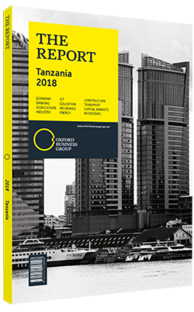Energy sector reform ensures transparency in Tanzania
The regulatory framework for the energy sector in Tanzania is evolving rapidly. However, the sheer volume of changes has left many investors struggling to ensure compliance, and recent laws and regulations create potential conflicts with previously struck production-sharing agreements (PSAs). In addition to the Petroleum Law of 2015, which overhauled various upstream and midstream segments, another new law mandates that all new concessions, contracts and licences are public information, while legislation introduced in July 2017 covering all extractive activities has led to uncertainty over existing projects.
A number of the reforms have been made to allow for more robust oversight, which should help to improve investor attractiveness. For example, the Petroleum Act of 2015 separated the regulatory and producer roles of Tanzania Petroleum Development Corporation to eliminate conflicting interests. In addition, power-purchase agreements signed between off-grid producers and industrial users no longer need government approval.
Local Content
In other areas, the reforms have forced a rethink of how to address key sectoral issues, such as local technical expertise. For example, the Petroleum Act created local content standards for employment, equity and procurement – a common trend across Africa’s natural resource-rich economies. Countries including Ghana, Nigeria, Kenya and South Africa have implemented similar policies.
Tanzania’s local content laws require companies to procure locally where possible, and when importing, to do so through a joint venture in which a domestic company has at least a 25% equity stake. Compliance in the upstream segment is challenging, given the limited roster of experts and locally owned entities with the capacity to play roles in the more technical aspects.
The Association of Tanzania Oil & Gas Service Providers was established in 2017 to help address the gap. In addition, the Oil & Gas Association of Tanzania has undertaken a study, working with many government stakeholders, to identify demand for skills and services, to point the way forward for international oil companies’ coordination of local content activities.
Scope of Reform
Central to much of the recent legislation has been a push by the government to ensure the country’s domestic economy is receiving a greater share from foreign investors, particularly in the extractive sector. Several of Tanzania’s peers on the continent have sought to do similar things, allowing limited bidding on certain extractive sites, or increasing royalties and taxes on natural resource producers.
Tanzania’s most recent effort in this regard is the Natural Wealth and Resources Contracts (Review and Renegotiation of Unconscionable Terms) Act of 2017, which primarily focuses on mining activity, but ultimately empowers the legislature to direct government to renegotiate terms in existing contracts for any type of resource-extraction project it decides has unconscionable terms. If renegotiations are unsuccessful, any clauses with terms deemed to apply will be treated as if deleted from any agreement, such as a PSA between government and a gas producer. The word “unconscionable” is not clearly defined in the law, however, creating an element of legal uncertainty for existing and potential new investors.
Similarly, the Natural Wealth and Resources ( Permanent Sovereignty) Act of 2017, which was passed at the same time, mandates that all disputes be resolved in Tanzanian courts retroactively, ruling out international arbitration – a well-established investment protection mechanism – as an option. This has sparked concerns that investor confidence may be eroded, and will have a detrimental impact on the ability of state-owned oil companies to access international financing. The act also defines all mineral wealth as owned by the Tanzanian people, and cannot therefore be formally owned by a producer. Beyond the impact this has on investor competitiveness, there are other more immediate potential ramifications, such as increased bureaucracy.
You have reached the limit of premium articles you can view for free.
Choose from the options below to purchase print or digital editions of our Reports. You can also purchase a website subscription giving you unlimited access to all of our Reports online for 12 months.
If you have already purchased this Report or have a website subscription, please login to continue.

